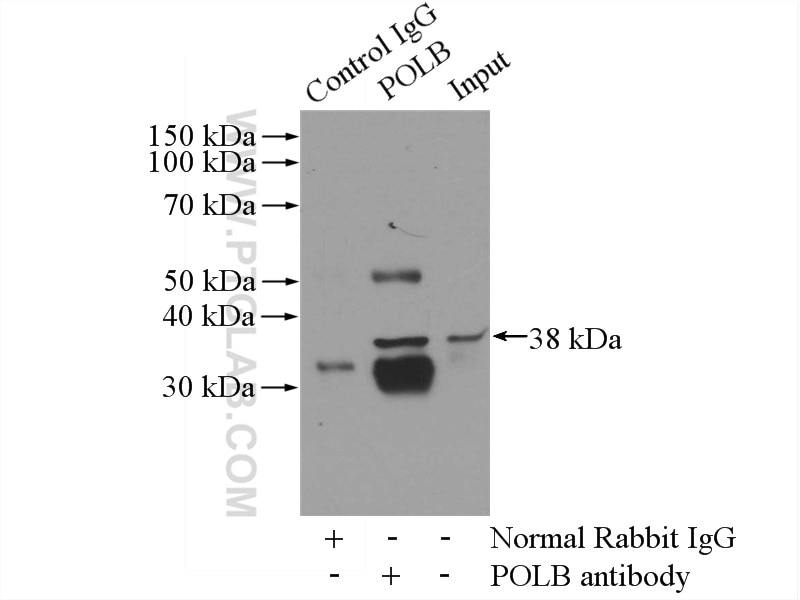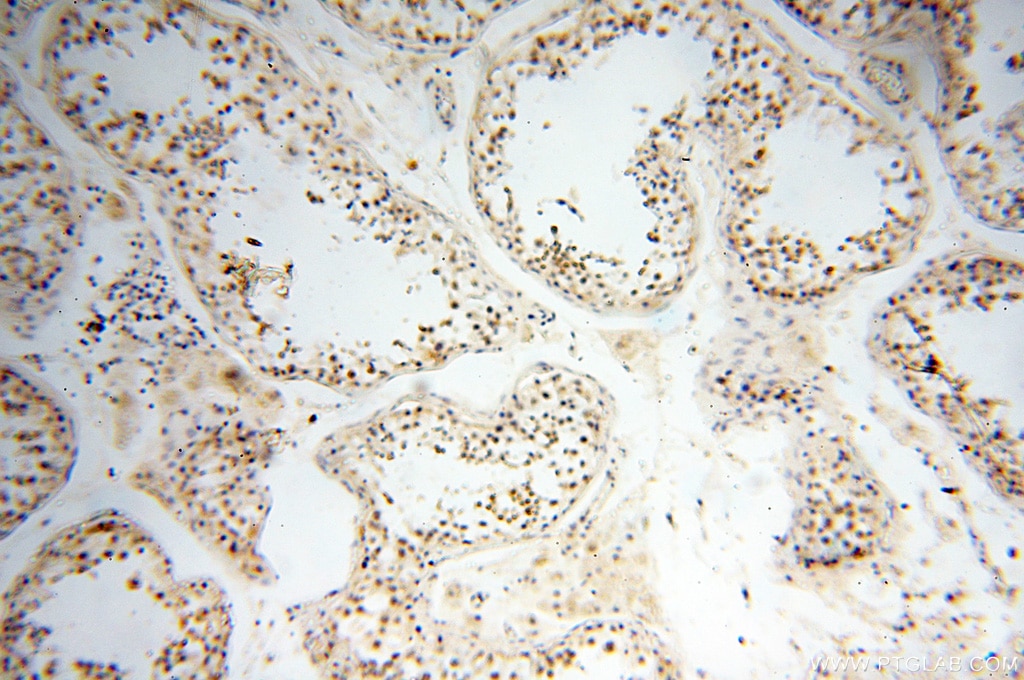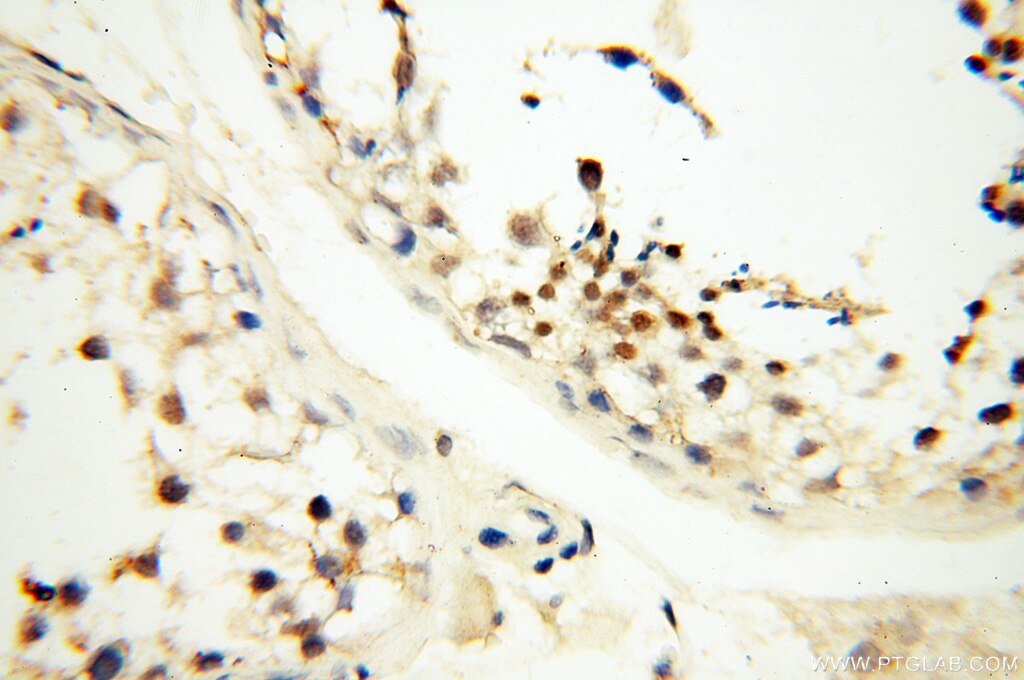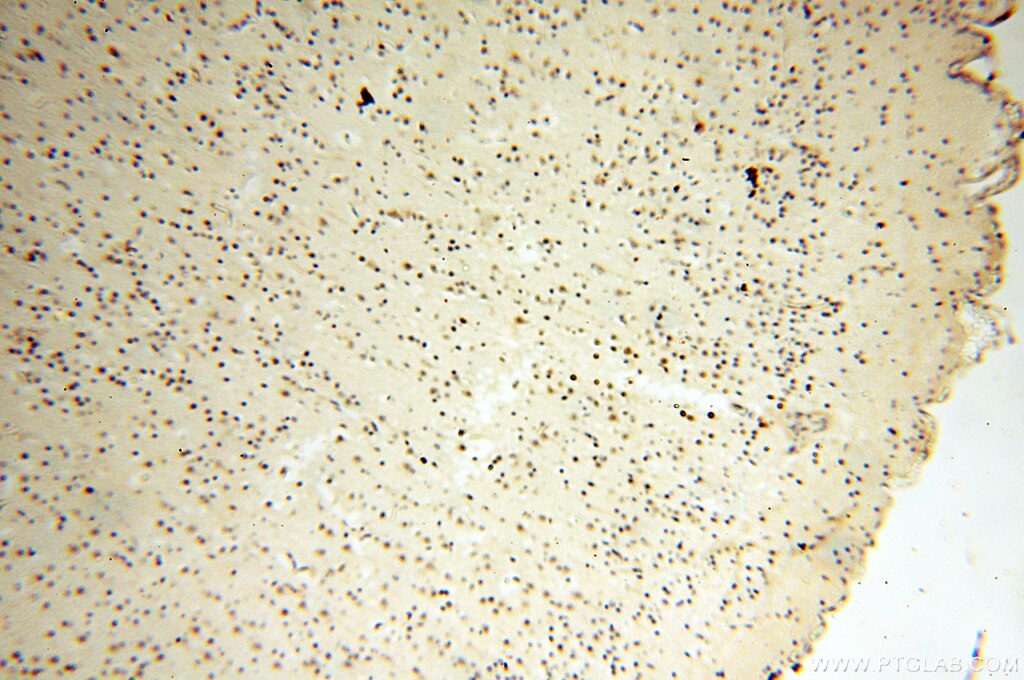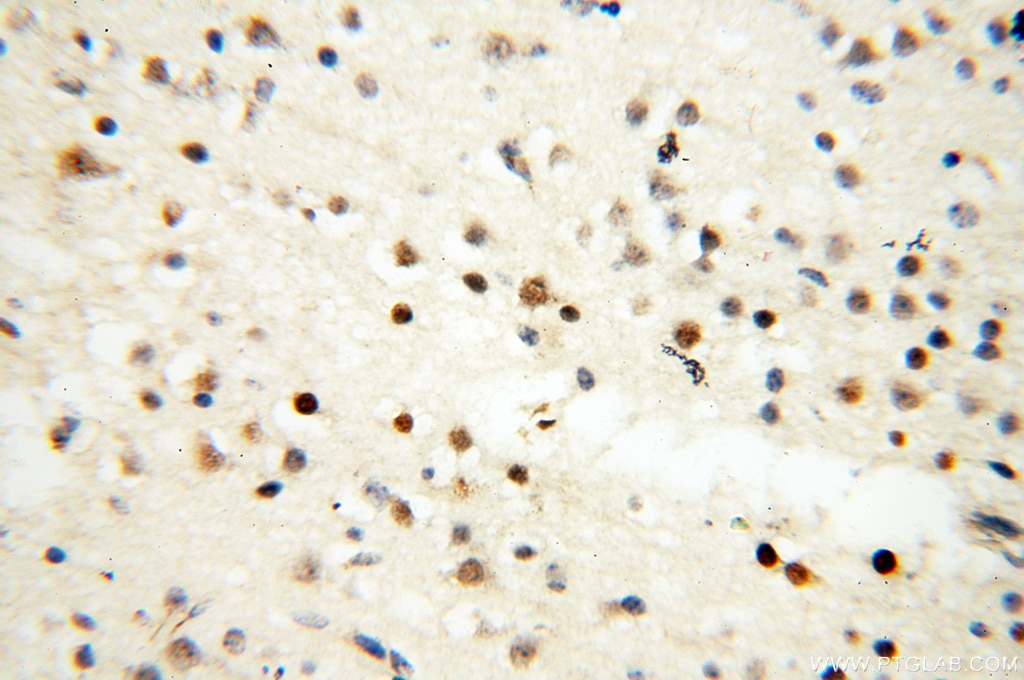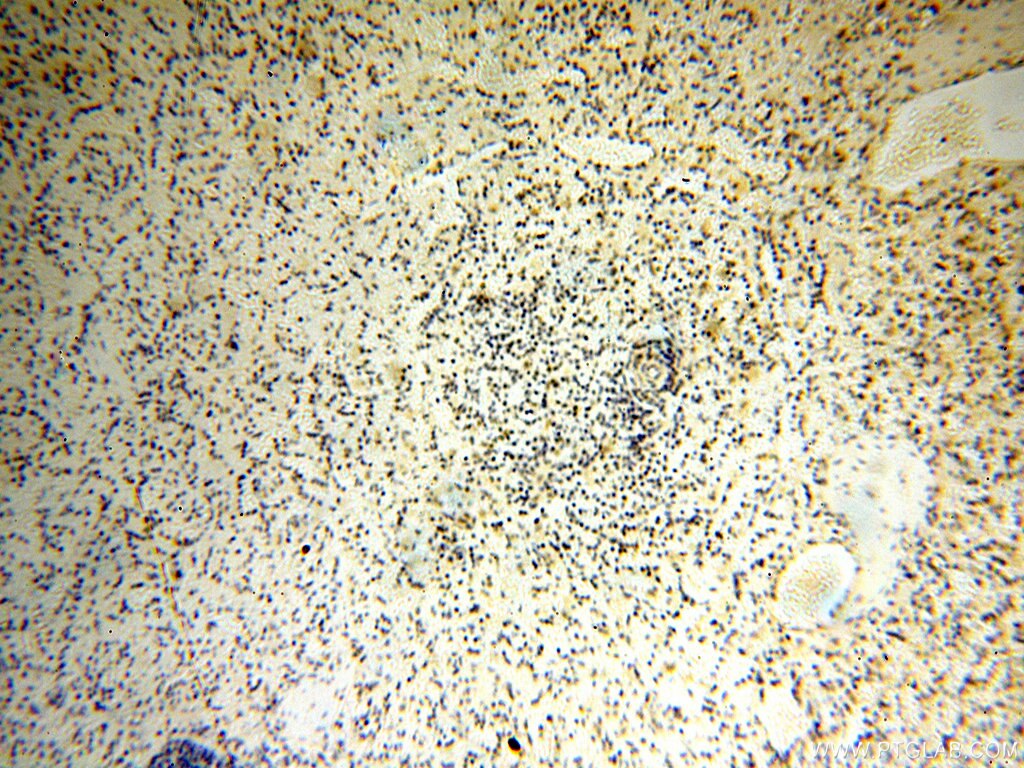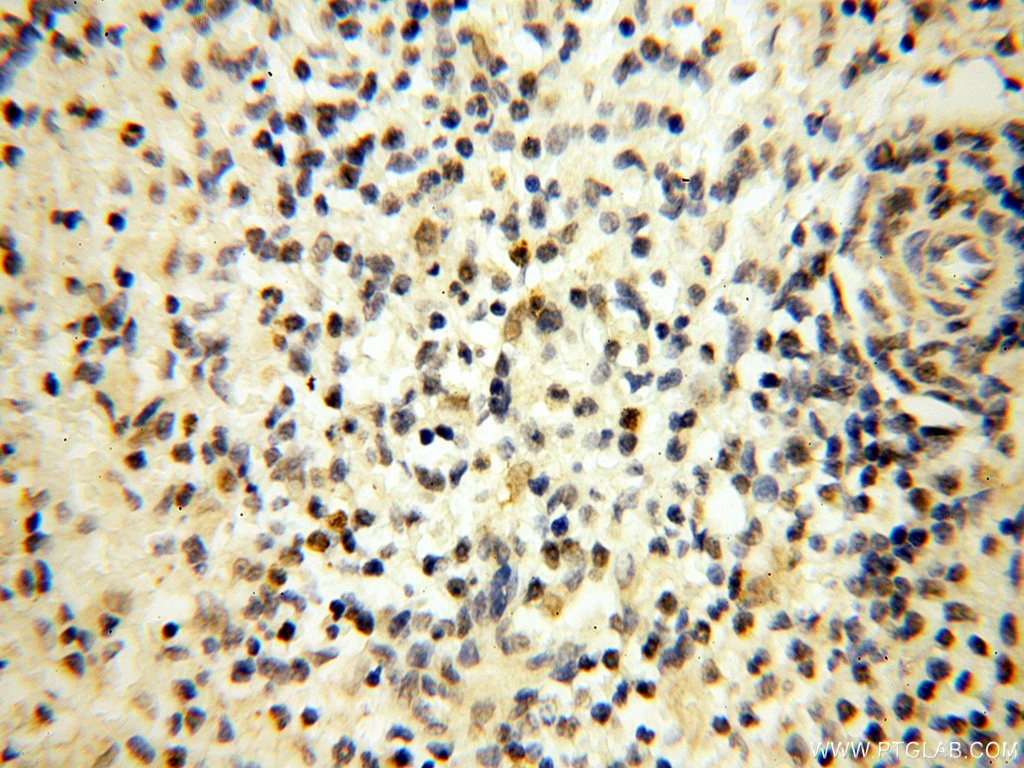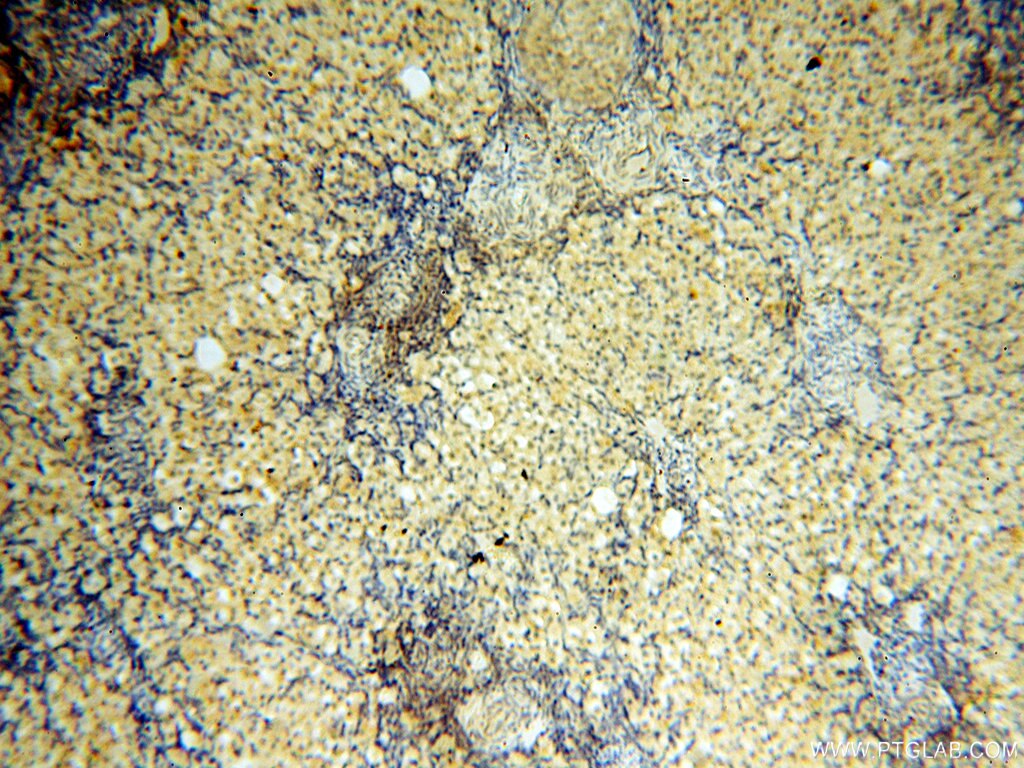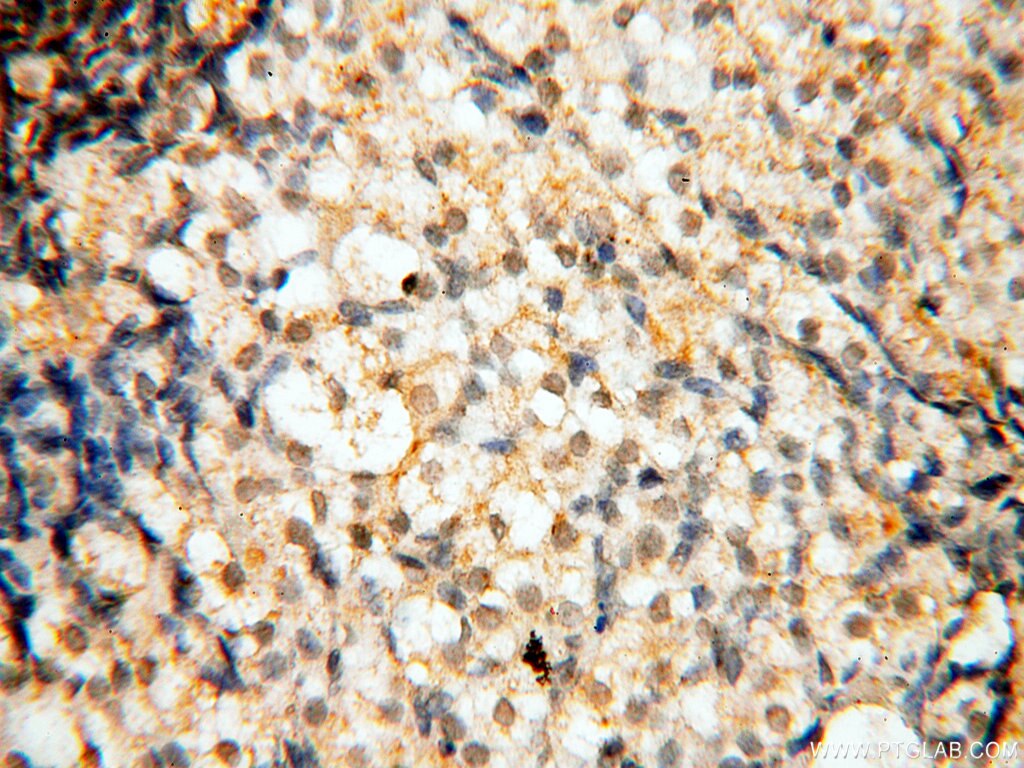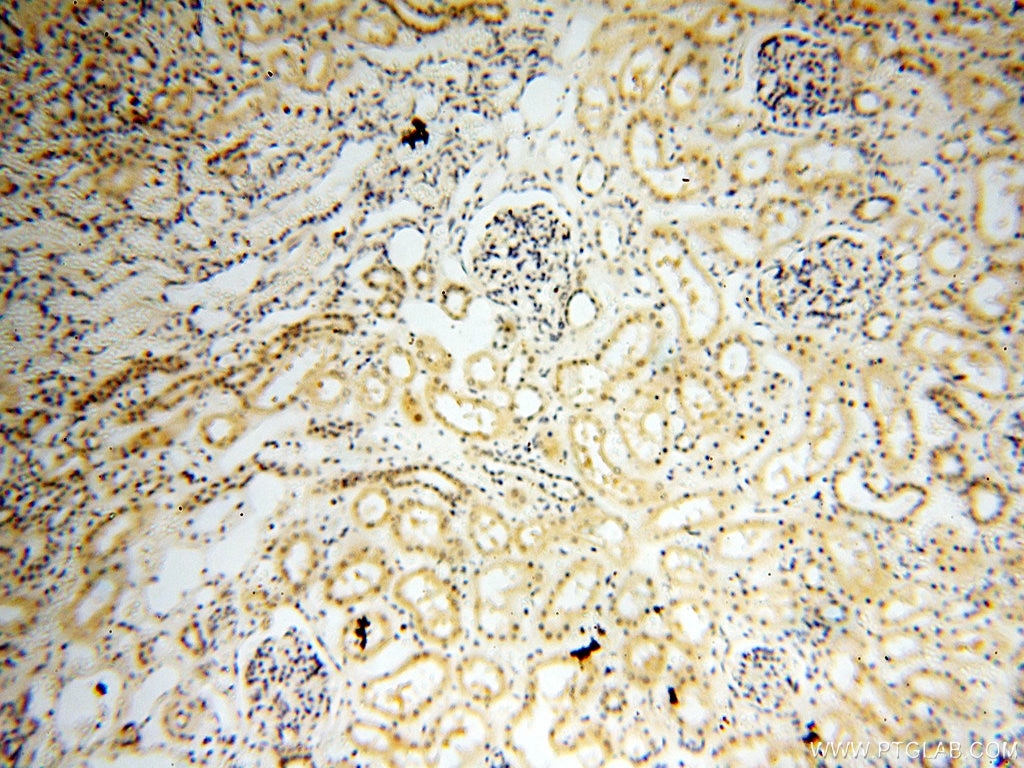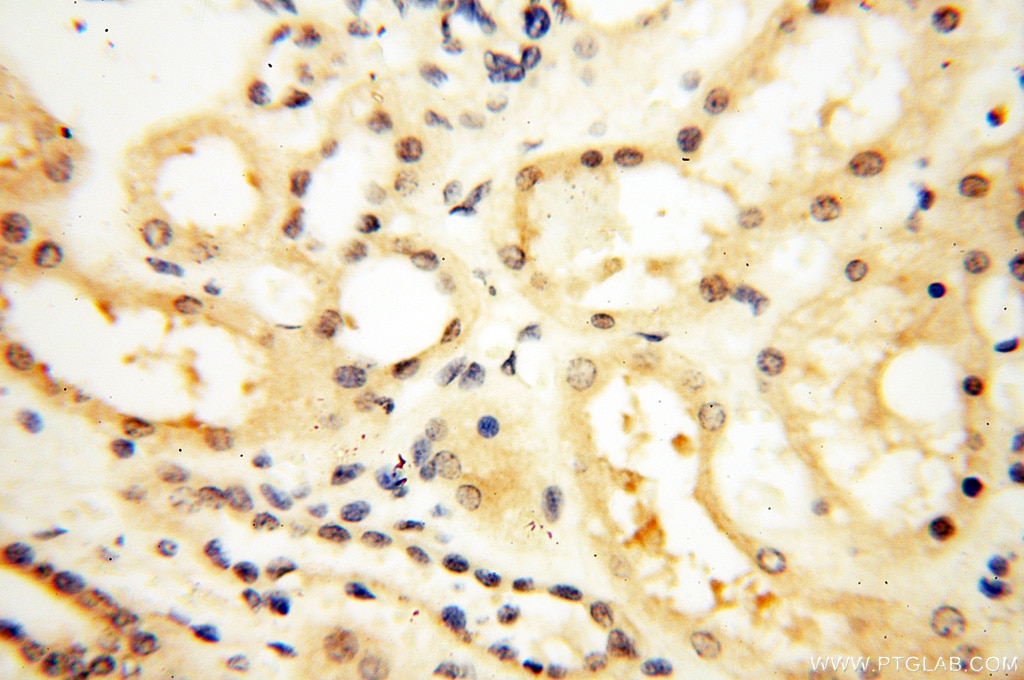- Featured Product
- KD/KO Validated
DNA Polymerase Beta Polyklonaler Antikörper
DNA Polymerase Beta Polyklonal Antikörper für IHC, IP, WB, ELISA
Wirt / Isotyp
Kaninchen / IgG
Getestete Reaktivität
human und mehr (2)
Anwendung
WB, IP, IHC, ELISA
Konjugation
Unkonjugiert
Kat-Nr. : 18003-1-AP
Synonyme
Galerie der Validierungsdaten
Geprüfte Anwendungen
| Erfolgreiche Detektion in WB | COLO 320-Zellen, K-562-Zellen |
| Erfolgreiche IP | K-562-Zellen |
| Erfolgreiche Detektion in IHC | humanes Hodengewebe, humanes Eierstockgewebe, humanes Hirngewebe, humanes Milzgewebe, humanes Nierengewebe Hinweis: Antigendemaskierung mit TE-Puffer pH 9,0 empfohlen. (*) Wahlweise kann die Antigendemaskierung auch mit Citratpuffer pH 6,0 erfolgen. |
Empfohlene Verdünnung
| Anwendung | Verdünnung |
|---|---|
| Western Blot (WB) | WB : 1:500-1:2000 |
| Immunpräzipitation (IP) | IP : 0.5-4.0 ug for 1.0-3.0 mg of total protein lysate |
| Immunhistochemie (IHC) | IHC : 1:20-1:200 |
| It is recommended that this reagent should be titrated in each testing system to obtain optimal results. | |
| Sample-dependent, check data in validation data gallery | |
Veröffentlichte Anwendungen
| KD/KO | See 1 publications below |
| WB | See 5 publications below |
Produktinformation
18003-1-AP bindet in WB, IP, IHC, ELISA DNA Polymerase Beta und zeigt Reaktivität mit human
| Getestete Reaktivität | human |
| In Publikationen genannte Reaktivität | human, Maus, Ratte |
| Wirt / Isotyp | Kaninchen / IgG |
| Klonalität | Polyklonal |
| Typ | Antikörper |
| Immunogen | DNA Polymerase Beta fusion protein Ag12496 |
| Vollständiger Name | polymerase (DNA directed), beta |
| Berechnetes Molekulargewicht | 335 aa, 38 kDa |
| Beobachtetes Molekulargewicht | 38 kDa |
| GenBank-Zugangsnummer | BC100288 |
| Gene symbol | POLB |
| Gene ID (NCBI) | 5423 |
| Konjugation | Unkonjugiert |
| Form | Liquid |
| Reinigungsmethode | Antigen-Affinitätsreinigung |
| Lagerungspuffer | PBS mit 0.02% Natriumazid und 50% Glycerin pH 7.3. |
| Lagerungsbedingungen | Bei -20°C lagern. Nach dem Versand ein Jahr lang stabil Aliquotieren ist bei -20oC Lagerung nicht notwendig. 20ul Größen enthalten 0,1% BSA. |
Protokolle
| Produktspezifische Protokolle | |
|---|---|
| WB protocol for DNA Polymerase Beta antibody 18003-1-AP | Protokoll herunterladen |
| IHC protocol for DNA Polymerase Beta antibody 18003-1-AP | Protokoll herunterladen |
| IP protocol for DNA Polymerase Beta antibody 18003-1-AP | Protokoll herunterladen |
| Standard-Protokolle | |
|---|---|
| Klicken Sie hier, um unsere Standardprotokolle anzuzeigen |
Publikationen
| Species | Application | Title |
|---|---|---|
Sci Adv Deficiency in mammalian STN1 promotes colon cancer development via inhibiting DNA repair | ||
Nat Commun Targeting USP47 overcomes tyrosine kinase inhibitor resistance and eradicates leukemia stem/progenitor cells in chronic myelogenous leukemia. | ||
Proc Natl Acad Sci U S A Ligand-induced gene activation is associated with oxidative genome damage whose repair is required for transcription. | ||
Cancer Cell Int Overexpression of A613T and G462T variants of DNA polymerase β weakens chemotherapy sensitivity in esophageal cancer cell lines.
| ||
DNA Repair (Amst) Acetylation of oxidized base repair-initiating NEIL1 DNA glycosylase required for chromatin-bound repair complex formation in the human genome increases cellular resistance to oxidative stress. | ||
NAR Cancer XRCC1 promotes replication restart, nascent fork degradation and mutagenic DNA repair in BRCA2-deficient cells. |


